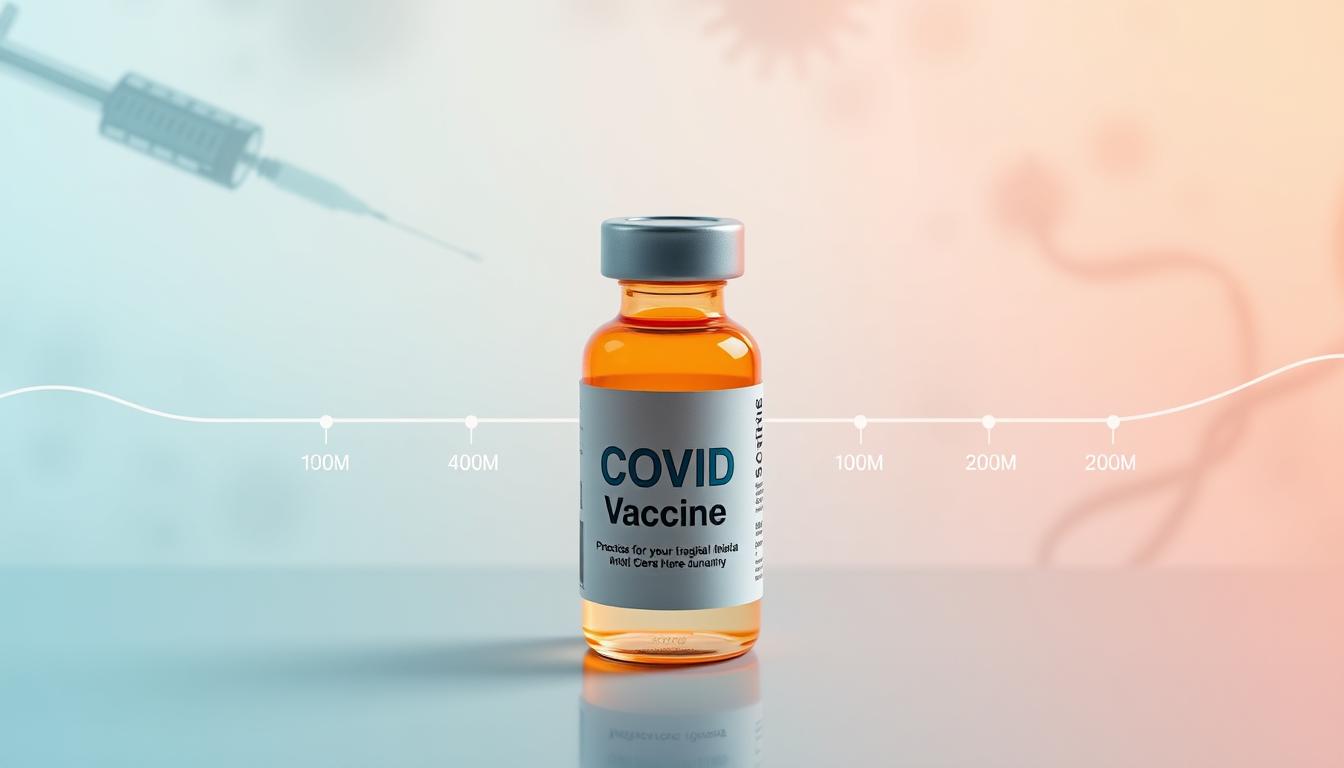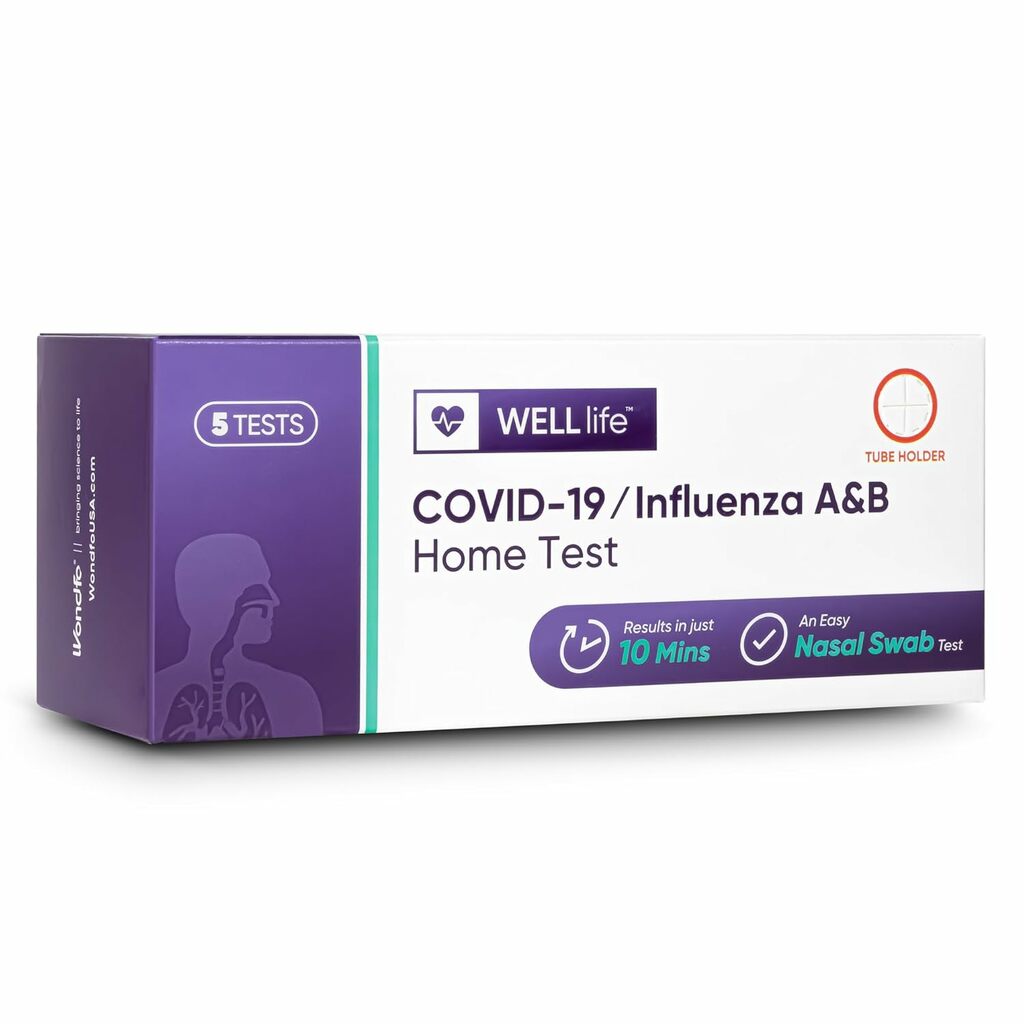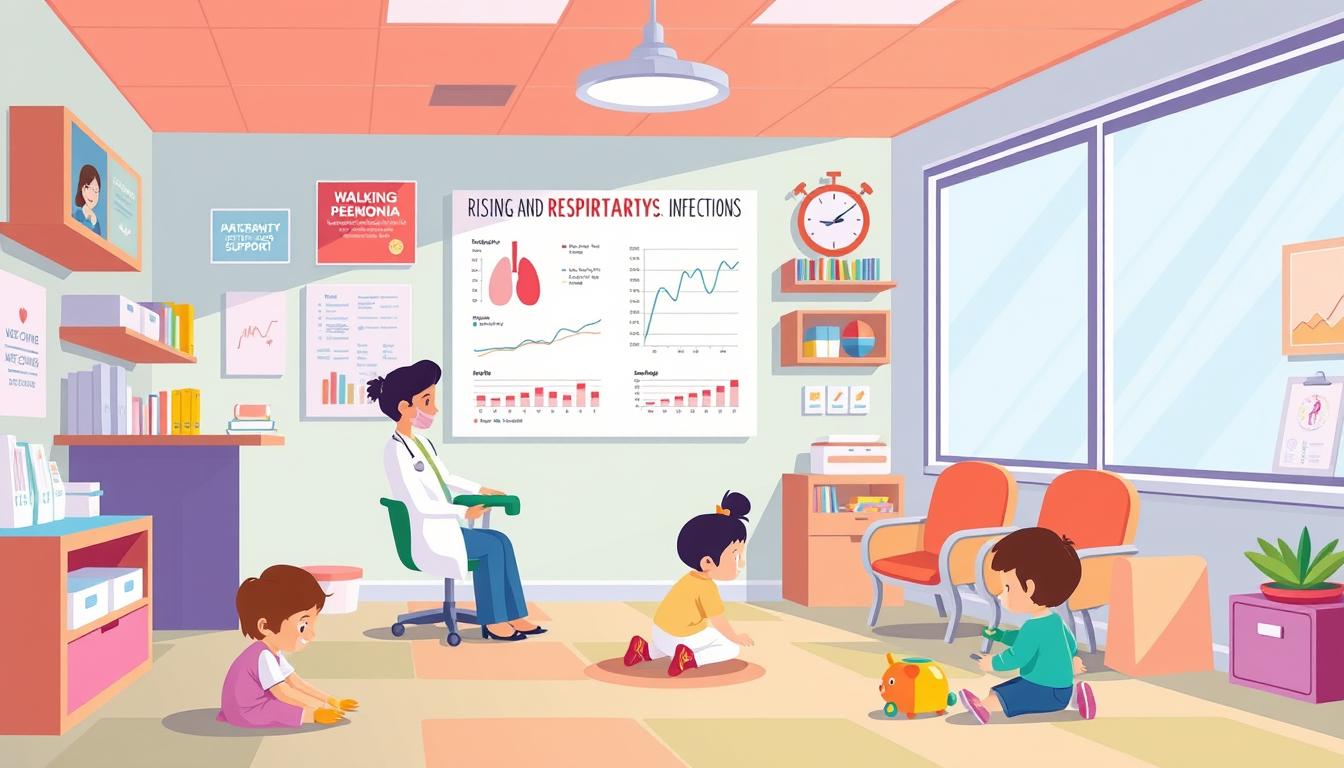The COVID-19 vaccines changed the fight against the pandemic. Millions got their shots, and people wondered: How long does the vaccine protect us? Studies and experts have given us answers. They’ve also shown how well the vaccines work over time.
Learning about how long the vaccine protects us is important. It helps us understand how well it keeps us safe from COVID-19. As time goes on, the vaccine’s protection might fade. This leads to talks about booster shots and keeping immunity strong for a long time.
Key Takeaways
- Various studies indicate differing durations of immunity provided by COVID-19 vaccines.
- Initial efficacy rates are high, but waning immunity over time necessitates booster shots.
- Long-term immunity is influenced by factors such as age, health, and exposure to the virus.
- Real-world data is critical in understanding vaccine protection longevity.
- Booster doses play a vital role in maintaining vaccine effectiveness.
Understanding Vaccine Efficacy and Long-Term Immunity
Vaccines help fight diseases by giving people immunity. Vaccine efficacy is how well they work. But, how long this protection lasts is still being studied.
Initial Efficacy Rates
Studies show how well vaccines work at first. For example, Pfizer and Moderna’s COVID-19 vaccines were about 95% effective. But, this doesn’t tell us how long the protection lasts.
Factors Affecting Long-Term Immunity
Many things can change how long vaccines protect us. Age and health are big factors. Older people or those with weak immune systems might not stay protected as long.
Also, new virus strains can make vaccines less effective. This might mean we need more shots to stay safe.
| Factors | Impact on Long-Term Immunity |
|---|---|
| Age | Older individuals may have a shorter duration of immunity |
| Underlying Conditions | Chronic diseases can reduce the overall effectiveness of vaccines |
| Viral Variants | Mutations might decrease vaccine efficacy, necessitating booster shots |
Role of Antibody Levels in Longevity
How long we stay protected depends on our antibodies. High levels mean better protection for longer. But, these levels can drop over time.
This drop can make our immunity weaker. So, it’s key to keep an eye on antibody levels. This helps us know when we might need more shots.
For example, Pfizer’s vaccine works differently against different virus strains. Against XBB, it was 62% effective against hospital visits. But, it was only 50% effective against doctor visits 60 days later. This shows we need to keep watching and updating vaccines as needed.
Do the Covid vaccines provide long-lasting protection?
The world is still fighting the pandemic. The Centers for Disease Control and Prevention (CDC) says a second COVID vaccine is needed for some adults. This is to keep them safe from the virus.
People 65 and older and those with weak immune systems should get a second dose six months after the first. This is to boost their protection.
The COVID vaccine protection period is a big topic of study. Pfizer’s and Moderna’s mRNA vaccines are working well, but more doses might be needed in some cases. This shows we need to understand how vaccines and past infections work together.

The virus is changing fast, making it hard for vaccines to keep up. This is different from viruses like measles, where vaccines work for a long time. Dr. Ashish Jha from Brown University School of Public Health says we’re not sure how long mRNA vaccines will last.
To understand how long the COVID vaccine protects us, let’s look at some data:
| Outcome | VE during JN.1 period | VE during XBB period |
|---|---|---|
| Hospitalization | 35% | 62% |
| Emergency Dept./ Urgent Care Visits | 33% | 52% |
| Outpatient Visits | 24% | 50% |
The data shows the vaccine’s protection might go down over time. But it’s still strong in certain periods. Because the virus keeps changing, we might need to update vaccines often. This is especially true for older adults and those with weaker immune systems.
Dr. Akshay Syal from UCLA Health says we might not all need to get vaccinated twice a year. This is because how well we respond to vaccines changes with age. So, getting vaccinated every six to twelve months is now recommended to keep us safe from serious illness.
Understanding how long the COVID vaccine protects us is key to fighting the pandemic. By knowing how well vaccines work at different times and how the virus changes, we can make better plans to keep everyone safe.
Stay protected and comfortable wherever you go with LEVENIS KN95 Face Masks
Vaccine technology has advanced dramatically over the past few years, with mRNA vaccines being a prime example. These cutting-edge platforms allow for rapid development and adaptability in response to circulating variants. However, as with all medical interventions, there are potential vaccine side effects that individuals must consider. Common side effects may include soreness at the injection site, fatigue, and mild fever, which are generally short-lived. It is essential for the public to weigh the risks of potential side effects against the benefits of immunity and protection offered by the vaccines.
As we navigate the ongoing repercussions of Covid-19, understanding the longevity of vaccine-induced immunity becomes crucial. The consensus among public health officials is clear: vaccination, coupled with ongoing surveillance and potential booster shots, remains one of the best strategies to minimize the impact of the virus. Individuals are encouraged to stay informed about updates regarding vaccine recommendations and to discuss any concerns with healthcare professionals. This proactive approach will help communities maintain a level of safety and resilience against future outbreaks.
Ultimately, whether the Covid vaccines provide long-lasting protection is a nuanced question that continues to evolve. With scientific research progressing and real-world data being collected, we are better equipped to adapt our strategies in public health. By prioritizing vaccination and addressing the challenges posed by variants, we can work collectively towards a safer future for all.
Impact of COVID-19 Variants on Vaccine Efficacy
The COVID-19 virus has changed a lot. New variants like Delta and Omicron have made vaccines less effective. Now, scientists are working hard to make vaccines better.
Emergence of Variants and Booster Shots
New variants have made booster shots very important. Studies show that booster shots can help a lot. They can make vaccines 50-61% effective against new variants.
Booster shots help a lot. They can make vaccines 62% effective against serious illness. This shows how important booster shots are.
Testing Efficacy Against New Strains
Keeping vaccines effective against new strains is key. The BNT162b2 XBB vaccine is 43% effective against serious illness. But, it’s less effective over time.
Scientists need to keep making vaccines better. This is because new variants keep coming. They need to stay ahead of these changes.
Adaptations in Vaccine Technology
New technology is needed to make vaccines better. The 2024-2025 COVID-19 vaccine will protect against new variants. It will help fight against KP.3.1.1 and other new viruses.
Vaccines are still very important. They help keep people safe, especially those at high risk. The CDC and scientists are working hard to keep vaccines effective against COVID-19.
Herd Immunity and Breakthrough Infections
Getting herd immunity through vaccines is key in fighting COVID-19. Herd immunity happens when many people get immune to a disease. This makes it harder for the virus to spread. It helps keep those who can’t get vaccinated safe.
Achieving Herd Immunity Through Vaccination
Vaccines are the best way to get herd immunity. They help the body fight off the virus without making you sick. This way, vaccinated people help keep others safe by stopping the virus from spreading.
For example, the AstraZeneca vaccine uses the full 1273 amino acid sequence for the spike protein. Pfizer and Moderna vaccines modify this sequence for better stability. Their goal is the same: to stop the virus from spreading by making many people immune.
Breakthrough Infections: Frequency and Severity
Sometimes, even vaccinated people can get COVID-19. But, these cases are usually less severe and less common than in unvaccinated people. This shows vaccines are good at preventing serious illness.
Research shows that severe side effects are rare in vaccinated people. This means the benefits of getting vaccinated are greater than the risks. The mRNA COVID vaccines use lipid nanoparticles to deliver the vaccine. But, health officials watch for any safety issues.
Vaccines greatly reduce severe disease and death. This helps protect people at high risk and makes it easier to manage health resources. It’s a big win for public health.
Here is a summary table to visualize the key differences and benefits of popular COVID-19 vaccines:
| Vaccine | Spike Protein Sequence | Delivery System | Effectiveness |
|---|---|---|---|
| AstraZeneca | 1273 amino acid | Modified Chimpanzee Adenovirus | 70-90% |
| Pfizer | Modified for stability | Lipid Nanoparticles | 95% |
| Moderna | Modified for stability | Lipid Nanoparticles | 94.1% |
Conclusion
We’ve looked at how the COVID vaccine affects public health. The vaccine’s early success is just the beginning. Understanding long-term immunity is key.
Factors like antibody levels help us see how well vaccines protect us. Variants have made vaccines less effective. This shows we need booster shots and better vaccines.
Getting everyone vaccinated is crucial to stop the pandemic. We must keep working on vaccines to fight new strains. This keeps us safe and helps us get back to normal.
The fight against COVID-19 is ongoing. We need to keep researching and updating vaccines. This way, we can stay ahead of the virus.
As we move forward, talking about the vaccine’s future is important. We need to make sure vaccines reach everyone. This will help us control the pandemic.
Vaccines do more than just protect us. They help keep the whole world safe. We must all work together to make vaccines effective against new threats.

 Stay informed and prepared—get rapid, reliable results for COVID-19 and Flu A/B in just 10 minutes with the WELLlife Home Test Kit, featuring easy, non-invasive nasal swabs.
Stay informed and prepared—get rapid, reliable results for COVID-19 and Flu A/B in just 10 minutes with the WELLlife Home Test Kit, featuring easy, non-invasive nasal swabs.
